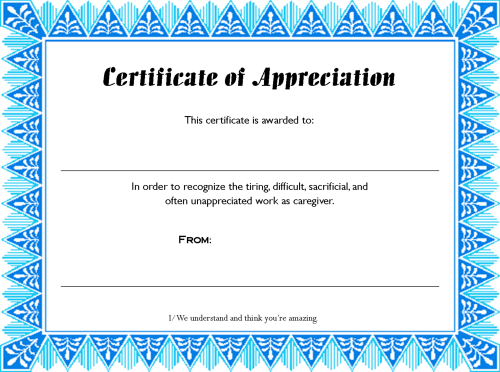More than 65 million people, 29% of the U.S. population, provide care for a chronically ill, disabled or aged family member or friend during any given year and spend an average of 20 hours per week providing care for their loved one.
The value of the services family caregivers provide for "free," when caring for older adults, is estimated to be $375 billion a year. That is almost twice as much as is actually spent on homecare and nursing home services combined ($158 billion).
In 43% of U.S. families, one sibling has the responsibility for providing most or all of the care for Mom or Dad, according to a survey of family caregivers. In only 2% of families in the U.S. the siblings split the caregiving responsibility equally.
The family caregiver is usually the adult child of senior parents who lives the closest. Between providing care, making decisions, and dealing with family members, the family caregiver has a stressful difficult job. This article is for the primary family caregiver, to help you in your role. Families come in all shapes and sizes, the situations are as varied as you can imagine. Many family siblings all have to work and have their own families, who will help? Many siblings may live a distance from Mom or Dad making being a part of caregiving difficult. If you are a family caregiver following are some tips.
The best advice is to plan ahead with your siblings and parents before care is needed. Discuss all possible situations and what Mom and Dad want. If it is too late to plan ahead, don’t worry. There are many resources available to help you. It is never too late to plan. Even if you have been caring for your Mom for many years, if you haven’t taken these steps, it is not too late.
Research – discover senior options in your area. This could be from senior centers programs, to assisted living options, to homecare services. There are family caregiver respite programs and senior day out services. Below is a list of resources to help you learn what options are available.
Have a family meeting – all siblings and parents should be at this meeting. Some may have to participate via telephone speakerphone, or skype, but it is best to have everyone in the immediate family involved. If you are planning ahead, your parent(s) may be in their 70’s and may be mostly independent. This is the best time to make decisions and hear what they want. Planning ahead is less stressful and can be more productive. However, if you are in the midst of having to make imminent decisions a family meeting is still important. There are many things to discuss and consider at a family meeting such as; who has the power of attorney? If no one knows, or if this isn’t planned ahead, you may want to call an elder law attorney to help. An elder law attorney can help with many areas of senior planning and options. When the other family members they see what is involved in caregiving they may be able or willing to contribute something. Open caring communication is key at this stage.
Get outside help – Some families have trouble agreeing on what is best for Mom or Dad. If this is the case get a social worker, or care manager to join the family meeting. To have an unbiased third party helps more often than not.
Don’t neglect your needs – many family caregivers are overworked and stressed. The job of caring both for Mom and for your own needs can be overwhelming. Schedule time for yourself. Homecare agencies may be able to help with short term respite so you can have a day off, or take a vacation. There are many caregiver support groups available where family caregivers meet to encourage one another, share ideas, and what programs are available. Do not try to do this alone and do not forget your own needs.
Give your Mom or dad as much independence as possible. You may need to take the car keys away at some point, if so, find an alternative means for them to get around. Make sure they feel they are making their own decisions. Every senior has care needs are at different levels. Do your best to help them feel as capable and independent as possible.
1. Caregiving in the United States; National Alliance for Caregiving in collaboration with AARP; November 2009
2. Evercare Survey of the Economic Downturn and Its Impact on Family Caregiving; National Alliance for Caregiving and Evercare. March 2009 Page 2
3. Study conducted by The Boomer Project, included 711 adults in the U.S. and 383 in Canada ages 35-64 with living siblings or stepsiblings, who said they either currently provide care for a parent or older relative, or did provide care in the past 18 months.
















